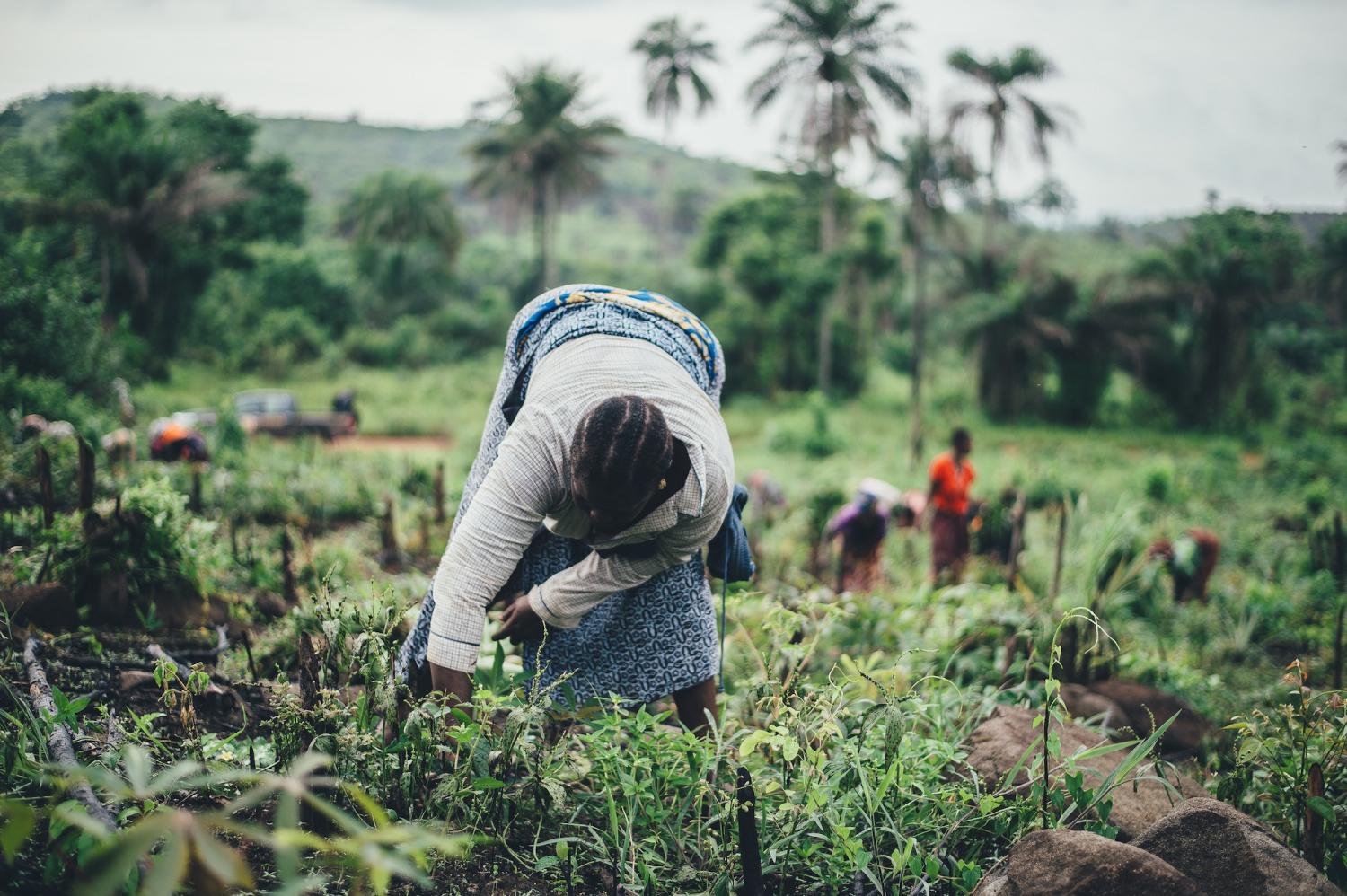
This article series is sponsored by Philip Morris International.
The scene plays out in farming communities all around the world: Children working alongside their parents, harvesting crops or performing other manual labor to help the family business. For some families, the work is tradition. For others, it’s an economic necessity.
But for businesses that contract with these farms, it’s a problem. Many children drop out of school too early, combine school with long working hours, or do work that is dangerous and not appropriate for their age; they become child laborers, and this should have no place in a company’s supply chain. Companies should act to not only eradicate the problem, but also help tackle the underlying reasons it exists.
That’s what Philip Morris International (PMI) has been striving toward—eliminating child labor by changing the way it purchases tobacco, monitoring the labor practices on farms, and adopting initiatives to help farming communities improve their business operations so they don’t need child labor.
But it takes more than one company to make a dent in the problem.
Despite progress in recent years, 152 million children are still swept up in child labor practices globally, with the agricultural sector accounting for the largest share—71 percent. Much of that number comes from children working on family farms, which is why it is critical to understand and address family reliance on child labor before we can eradicate it.
Companies involved in the purchase of agricultural goods can and must play a role in developing this understanding and eliminating child labor from their supply chains. To do so, they need to engage in business models that enhance the economic conditions of farmers and take an active part in monitoring and improving the overall practices of each farm that supplies them with raw materials.
While this may not be easy given the globalized nature of trade in agricultural goods and the fragmented reality of agriculture production—with millions of small producers scattered across vast and often remote geographies—we believe companies can develop such business models, implement programs that monitor practices at the farm level and drive positive change on a global scale.
A model where anti-child labor efforts are part of business practices
PMI sources tobacco from more than 350,000 farmers in 27 countries. Child labor in tobacco growing is a reflection of the wider agricultural reality, with most farms that produce tobacco being small-scale family farms of less than 2 hectares.
To tackle this major issue, PMI adopted a business model that aims to enhance the economic conditions of farmers and take an active part in monitoring and improving conditions from farm by farm. The approach has seen success, and by 2025, we want to achieve a situation where no child labor occurs—or occurs only as isolated incidents that are addressed immediately.
Here’s a look at how we’ve gotten this far:
Eliminating the middleman. Over the past decade, PMI has progressively moved away from complex supply chains with multiple intermediaries, implementing an integrated production approach that involves direct contracts with farmers and allows for the company to take an active role in improving farm outcomes and the overall conditions of production, including tackling a family’s reliance on child labor. In 2018, 93 percent of the tobacco purchased by PMI was sourced through direct contracts with farmers, either by PMI affiliates or its suppliers.
Doing away with intermediaries means that more of the economic value is kept at the farm level, by establishing mutually beneficial business relationships. Contractual arrangements also give farmers predictability—assuring them of the sale of the crop at the end of the season—and protect them from global price fluctuations driven solely by supply and demand pressures, as we see in many commodities. Moreover, direct contractual relationships benefit both the farmers and the companies involved. In the integrated production approach that PMI has implemented, these contracts are coupled with technical assistance to farmers, which support the improvement of yields and quality and therefore the improvement of the value generated and retained at the farm.
Using field technicians. Tobacco farmers contracting with PMI or with its suppliers are regularly visited by field technicians who provide technical assistance and facilitate access to information, technology and financing, which are otherwise not available to small-scale family farmers in many parts of the world.
In addition to the direct positive impact they can have on a family’s income, these 2,600 field technicians play a crucial role in the company’s efforts to eliminate child labor from its supply chain by applying a set of standards regarding agricultural practices.
Implementing standards. Since 2011, PMI has been implementing an Agricultural Labor Practices (ALP) program that currently reaches more than 350,000 farms. This program was developed in a strategic partnership with Verité, a leading global NGO in responsible supply chains, and consists of a global ALP Code that sets labor standards, including protective child labor standards, consistent with the International Labor Organization’s relevant conventions.
The standards of the ALP Code are reflected in the contracts established with farmers, and to support its implementation, there is an ongoing global training program for field technicians. During their regular visits to farms—at least once a month during the crop season—field technicians provide training and monitor farms’ practices based on the standards set in the ALP Code. They are also equipped with electronic tools to gather relevant socioeconomic information from each farm, including who lives and works on the farm, whether there are school-age children, whether the farmer has other crops besides tobacco, etc. Whenever field technicians identify a situation of child labor, their role is to take prompt action to stop it, work collaboratively with the farmer to prevent the situation from happening again, and escalate the problem if the situation persists.
Through their regular farm visits, field technicians collect information that allows PMI and its partners around the world to devise strategies and initiatives to address the root causes of the problems identified. Two critical areas are looked at in tackling the underlying reasons behind child labor: how the farm’s business operation can be improved to empower the farmer to avoid child labor and the community work that can support a family’s efforts.
Providing concrete help. PMI has invested in strategies to help farmers keep their children away from the fields. One way is by mechanizing certain processes and simplifying others so there is no longer a need for children to help on the farm. Another way is by supporting access to education (through scholarships, after-school programs and daycare centers) and mobilizing mothers and community groups. For example, in 2016, a community-based initiative known as Rumah Pintar (“Smart House”) was introduced in Indonesia by PMI’s Indonesian affiliate, its suppliers and local NGOs.
Rumah Pintar are community facilities offering after-school recreational and educational activities to the children of contracted farmers and workers. In 2018, the program had expanded to 34 villages and 14,561 children aged 7 to 18, and two external surveys indicated a significant reduction in child labor among the communities where the program was active.
Monitoring and transparency. A comprehensive third-party monitoring system complements the overall effort. It provides an external perspective of the management efforts to implement the ALP program as well as a detailed assessment of farm-level practices. These external assessments are conducted by Control Union, following a methodology and approach developed by Verité, a world leader in this domain. The outcomes of these assessments are regularly published on PMI’s website; to date, more than 20 external assessments are available for review. We believe this level of transparency is a critical element in our work and a good show of the company’s commitment.
In 2018, through its monitoring and remediation processes, PMI identified and addressed more than 4,000 child labor incidents worldwide. Over the years, we have seen tangible improvements of the global situation, but, clearly, much remains to be done.
Child labor has no place in our supply chain. We have put in place mechanisms to identify it, and we are systematically addressing the cases that surface. We believe our work could be an example for other companies in our sector and beyond: Together, we can support the child labor-related objectives within the United Nations’ Sustainable Development Goals.
Image credit: Annie Spratt/Unsplash

Miguel Coleta is Director of Sustainability at Philip Morris International.














